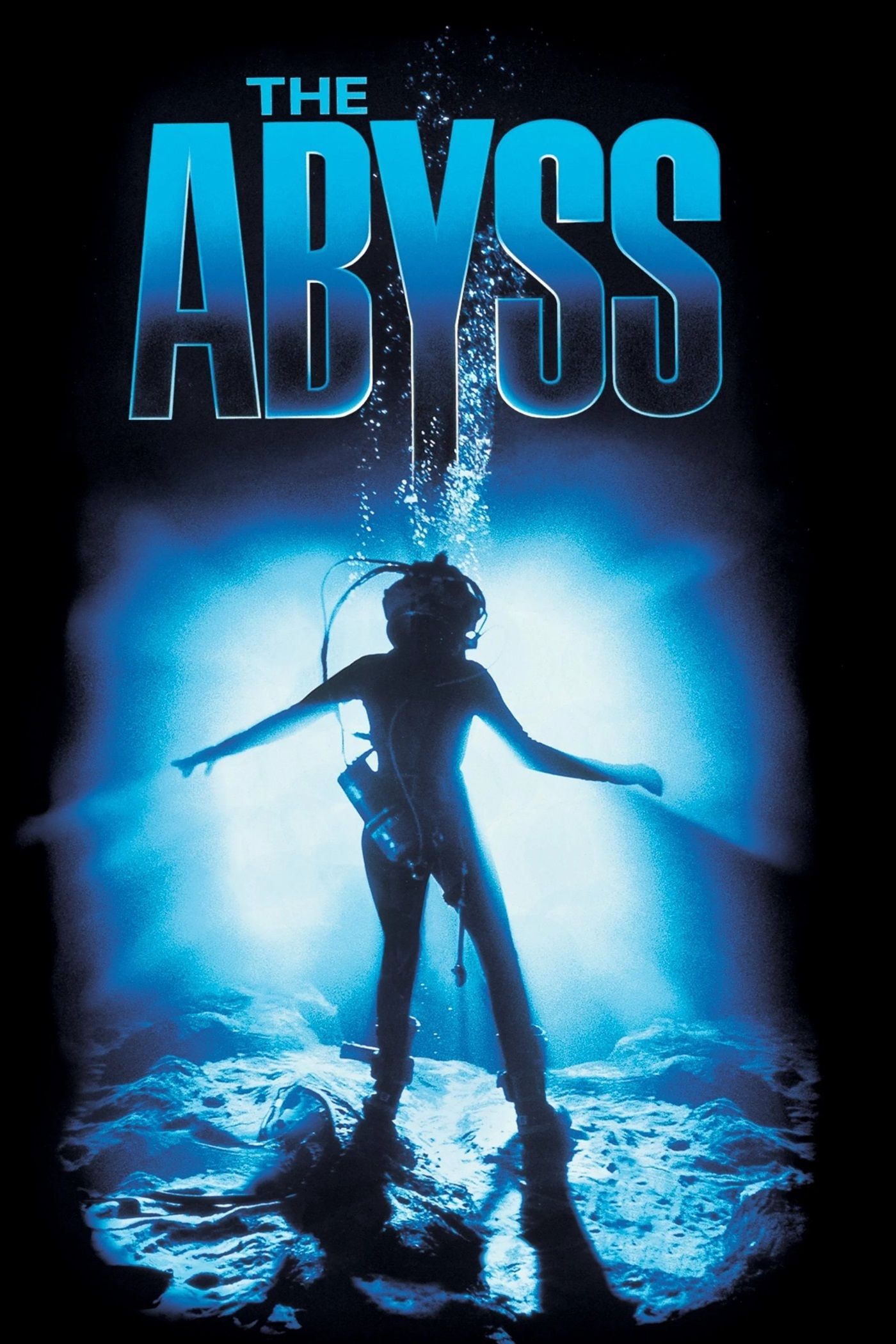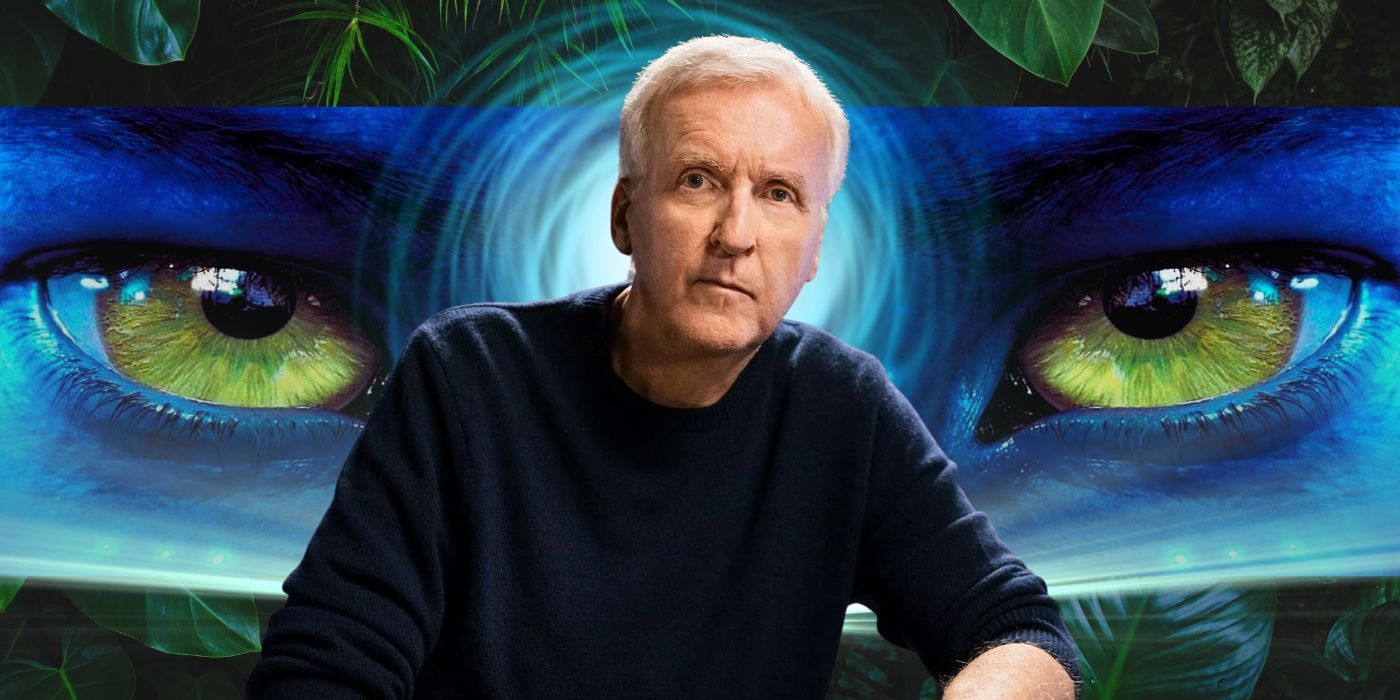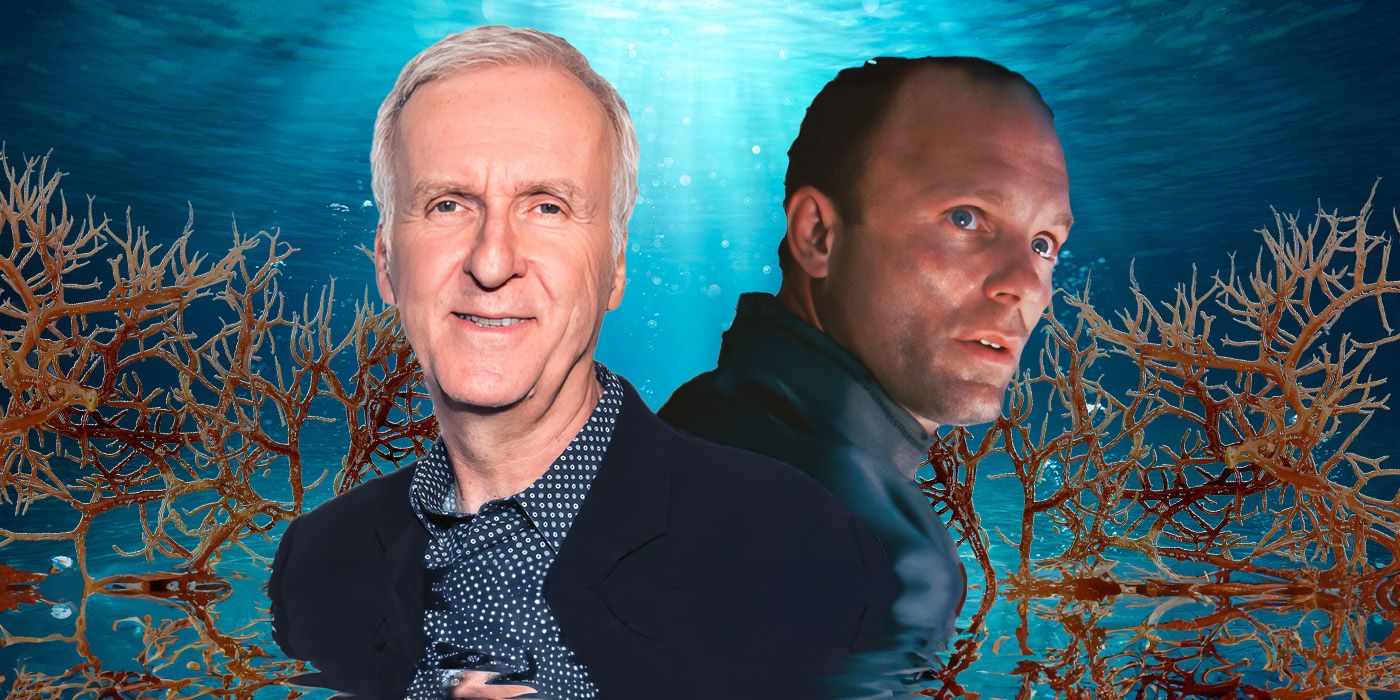The Big Picture
-
The Abyss
was overlooked despite being as ambitious as James Cameron’s other blockbusters, only making $90 million. - The film’s 4K restoration reveals Cameron at his angriest, most personal, and most political.
- The movie is a special passion project with a definitive “Special Edition,” adding 31 minutes to the runtime.
Of all the films in James Cameron‘s filmography, his 1989 movie, The Abyss, might be the most overlooked. It was just as ambitious as most of his other blockbuster projects, yet it only made a meager $90 million against its approximately $45 million budget, abysmal compared to his usual record-breaking standards. Over time, it has languished in a lack of home video distribution, making it even more buried.
The Abyss finally got its long-awaited 4K restoration and is making its debut on Blu-ray and 4K UHD in 2024. This new look shows not only that the film is just as impressively mounted as Cameron’s other spectacles, but it’s also Cameron at his angriest, most personal, and most political. It’s a passion project made at a turning point of his life, marking the birth of a true auteur who would go on to break worldwide box office records over the next few decades.

The Abyss
A civilian diving team is enlisted to search for a lost nuclear submarine and faces danger while encountering an alien aquatic species.
Release Date August 9, 1989
Director James Cameron
Cast Ed Harris , Mary Elizabeth Mastrantonio , Michael Biehn , Leo Burmester , Todd Graff , John Bedford Lloyd
Runtime 140 minutes
Writers James Cameron
Studio 20th Century Fox
Tagline A place on Earth more awesome than anywhere in space.
What Is ‘The Abyss’ About?
The Abyss tells the story of a private, commercial deep-sea drilling crew who have been hired by the U.S. military to investigate a submarine wreck before the Soviets arrive. The crew is led by the well-respected Virgil Brigman (Ed Harris), whose estranged wife, Lindsey (Mary Elizabeth Mastrantonio), is also the designer of his ship. Lindsey insists on joining the expedition, and the Navy sends two SEALs, as well.
As they approach the wreckage, strange power outages begin to happen, and they encounter what is possibly an unidentified submerged object (USO, the underwater equivalent to UFOs). Tensions flare as the SEALs and the ship’s crew become torn about what to do with the alien presence, all under the literal pressure of being 25,000 feet below the surface.
The Abyss was infamously difficult to shoot, like many of Cameron’s other projects. The cast and crew were put through abusive, grueling conditions: Ed Harris almost drowned, had a mental breakdown, and basically became sworn enemies with James Cameron. Like many other Cameron films, it represents a leap in the history of computer-generated effects, with a scene of a CGI creature that breathtakingly holds up to this day. The record-breaking success of Terminator 2: Judgment Day allowed Cameron to go back to The Abyss and finish his initial vision, leading to a director’s cut that adds 31 minutes to the film. While both versions are being released on Blu-ray, it’s the longer, 171-minute “Special Edition” that is considered definitive, receiving a theatrical re-release last year.
James Cameron’s Political Implications in ‘The Abyss’
 Image via 20th Century Studios
Image via 20th Century Studios
The Special Edition is important because it crucially changes the film’s meaning. Of all the passages added back into the movie, what stands out most isn’t the “tidal wave” finished with new CGI by Industrial Light and Magic, but the news clips of war, bombings, and nuclear armageddon. This is James Cameron’s New Hollywood moment: debuting in the 1980s, Cameron is generally not considered part of the New Hollywood generation of directors that arose in the late 1960s and ’70s. However, James Cameron is a Baby Boomer who grew up with counterculture and antiwar protests; he has never been shy with political messaging, with his nakedly environmentalist and anti-colonization film, Avatar. The Abyss shows Cameron at his most politically explicit. By using the device of real-life news footage (unimaginable in blockbusters today), Cameron isn’t afraid to break his film’s verisimilitude and cross into the world of the audience—a worthy sacrifice to advocate his platforms of nuclear disarmament, ceasefire, and love over hate.
The true antagonist of the film is undoubtedly the Navy SEAL, Lt. Coffey, played by Michael Biehn. Cameron doesn’t hold back from portraying Coffey as a mustache-twirling, capital-B Bad Guy, following orders to unhinged extremes. It is precisely his training and discipline that drive him to villainy, and through the vessel of Coffey, Cameron suggests militarism is an unreasonable, unstoppable force of murder, destruction, and aggression. Cameron has a long history of rejecting similar authority figures; his horrifying Terminators are police-coded, and the overarching villain of the Avatar series, Quaritch, is a retired soldier leading a private army.
But Cameron’s relationship with militarism in his films is more complex than just straightforward embrace or rejection. As much as he scorns militarism, he’s also visually obsessed with it. In The Abyss, the heroes of the film are just like the military: they are a private crew run with the same kind of hierarchy and discipline. The only difference is that their overlords are not the U.S. military, but corporate capitalism. From this, we see that Cameron wrestles with militarism in a complicated if not flawed and self-contradictory relationship; he is a true auteur because war and militarism are themes that haunt him throughout his entire filmography.
 Related
Related
James Cameron Already Has Ideas for ‘Avatar 6’ and ‘Avatar 7’
‘Avatar 5’ currently has a 2031 release date.
‘The Abyss’ Is Quite Literally a Personal Story for James Cameron
All of Cameron’s films are passionate and earnest; you can feel his big heart behind every frame. The Abyss, though, takes “personal” to a new level as it was made during Cameron’s second divorce. Even more, his ex-wife in question, Gale Ann Hurd, is also the sole producer of the film, as she and Cameron were separating while preparing to shoot the movie. Virgil and Lindsey are transparently stand-ins for the filmmaking duo; Virgil has a job akin to a director on a film set, and he’s trying to win back his estranged wife, while Lindsey is an exemplar of Cameron’s complicated relationship with women.
Cameron has been praised for including and writing “strong female characters” such as Aliens’ Ripley, but his idea of “strong” femininity is just his brand of macho-aggression transplanted onto a woman’s body, or, in other words, a shallow “girlboss”. His conception of women is still very much filtered through his male gaze, and the same applies to The Abyss’ Lindsey: she’s written as strong-willed, intelligent, and independent, but also extremely difficult and feisty. Virgil values her knowledge immensely, but he also literally slaps her and calls her a “b****” in one key scene of survival. Her personality is why he loves her, but he cannot resist domesticating her and calling her, “Mrs. Brigman,” which is considered a grand declaration of love by the film. By extension, the film respects, condescends, treasures, and subjugates women, openly celebrating a woman’s power and intellect by giving her abundant agency, just before luring her back into the position of wife. It’s a toxic, tumultuous relationship; it may not be healthy, but it’s gritty and real.
The Abyss also happens to be the first time that Cameron depicted water in his films, excluding his discredited debut with Piranha II: The Spawning. It introduces his signature motif of water gushing into and flooding compartments, seen again and again in Titanic and Avatar: the Way of Water. It’s clear that Cameron respects and fears water the way that a Christian fears God (Nowadays, we know that he spends so much time deep-sea diving that filmmaking might have become his side gig). The obsessive, zealous passions of The Abyss make it Cameron’s most personal film to date. Like New Hollywood, it is true auteur filmmaking, with his authorial stamp all over the movie on multiple levels. It stands just as tall as Cameron’s other towering masterpieces and firmly deserves the reappraisal that this much-delayed, wider availability will hopefully give.
The Abyss is available to watch on Amazon Prime in the U.S. The Abyss 4K is also now available to purchase.
Watch on Amazon Prime


